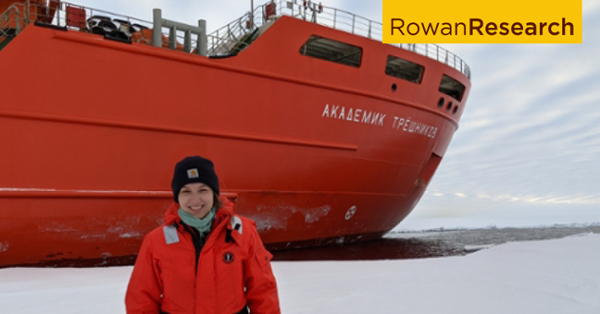Studying Arctic water chemistry to gauge climate change
Studying Arctic water chemistry to gauge climate change

The premise of her work sounds like the subplot in a Cold War spy movie: American scientist studies radioactive isotopes aboard Russian icebreaker.
But fiction this is not.
Lauren Kipp, Ph.D.
Environmental scientistAreas of expertise: Oceanography, radioactive isotopes, marine chemistry, geochemistry, climate change
More information
Lauren Kipp, Ph.D., an assistant professor of Environmental Science in the School of Earth & Environment, spent roughly six weeks last summer aboard the Russian icebreaker Akademic Tryoshnikov collecting Arctic Ocean water samples to determine changes in radium, a naturally occurring radioactive isotope.
Kipp said increasing radium levels in the waters there indicate changes that may be triggered by the planet’s warming.
“I study naturally occurring radioactivity, which is in low levels all around us,” said Kipp. “Radium isotopes tell us about the exchange of elements that occurs when the ocean comes into contact with land and continental shelf sediments. It acts as a beacon telling us that there has been an addition of elements with a similar shelf source, such as the nutrients that support life in the oceans.”
Kipp, who teaches “Oceans in Crisis,” “Oceans,” and “Environment in the Headlines,” will return to the Arctic in two years to collect more samples and retrieve two submersible samplers she left anchored just below the sea surface last summer. Read more about her work.
Her current research is funded through a National Science Foundation-Office of Polar Programs grant of $350,203 (total funding of $1,055,324, which is shared with researchers at Woods Hole Oceanographic Institution in Massachusetts).
Rowan University researchers are passionate about what they do. Find more at Meet Our Researchers.